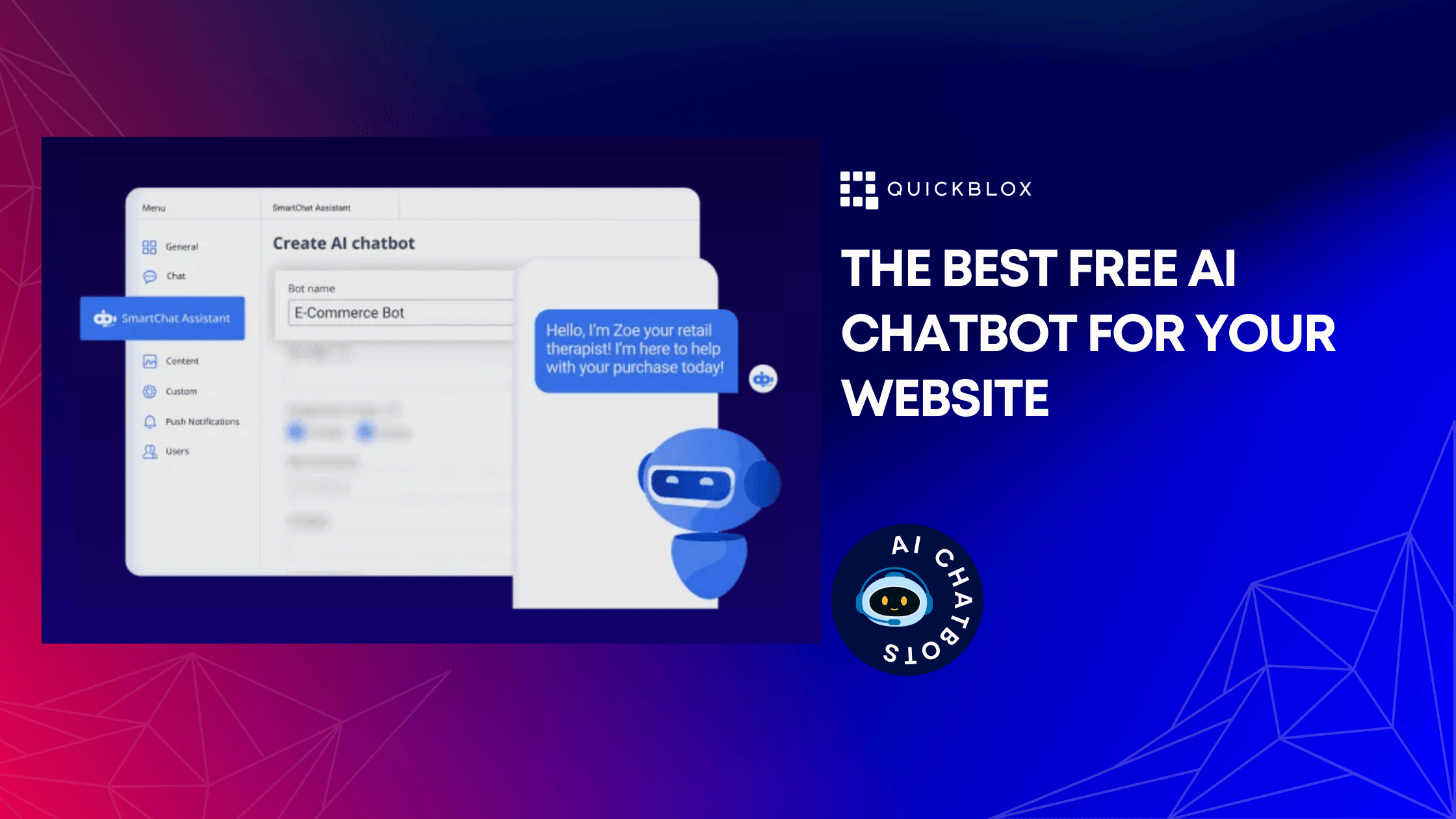
Summary: This article explores why more businesses are turning to Chat SDKs to power their in-app communication. From secure messaging SDKs to highly customizable chat SDK solutions, we break down the benefits of choosing the best chat SDK for seamless integration, branding control, and future scalability.
Table of Contents
Introduction
Customers today don’t just expect fast communication—they expect meaningful, intelligent, and uninterrupted interactions, right inside your app or digital platform. And while consumer-facing messaging apps have long been popular, businesses are waking up to the fact that embedding chat into their own environments isn’t just convenient—it’s transformational.
Enter the Chat SDK: not just a shortcut to messaging, but a powerful toolkit that lets your team build customizable chat SDK solutions–scalable, secure communication systems tailored to your business logic, brand, and future roadmap. Whether you’re in healthcare, finance, retail, or education, a Chat SDK doesn’t just streamline communication—it’s the silent engine driving personalization, automation, and customer trust.
In this post, we explore why your business can’t afford to ignore this critical tool—and how choosing the best chat SDK sets the stage for next-gen engagement.
What Is a Chat SDK, Really? (And What It’s Not)
A Chat SDK—or Software Development Kit—is not a chat app. It’s a toolkit for developers that lets you embed real-time messaging capabilities directly into your own app or digital platform.
Think of it like building blocks. Instead of creating messaging features from scratch (which can take months and require deep expertise in real-time protocols), a Chat SDK gives you pre-written, customizable chat SDK components—like message input, delivery receipts, user presence, and file sharing—so your team can build faster and smarter.
But here’s where it gets interesting: unlike plug-and-play chat apps (think Slack, WhatsApp, or Zendesk Chat), an SDK puts you in control. You decide where data lives, how messages flow, what security protocols are enforced, and how the experience looks and feels to users.
A Chat SDK is:
- Native: fully integrates into your existing iOS, Android, or web app.
- Customizable: every UI element, every feature, every workflow can reflect your brand and user journey.
- Scalable: built to support 10 or 10 million users without re-platforming.
- Secure: designed to meet compliance standards when chosen wisely.
It is not:
- A hosted chat tool with fixed branding and rigid workflows.
- A third-party chat app you redirect users to.
- A one-size-fits-all solution with minimal flexibility.
At first glance, plug-and-play chat tools seem like a dream: fast setup, no code required, and a ready-made interface you can start using today. But that convenience comes at a price—and not just a subscription fee.
Here’s what many businesses discover too late:
You Don’t Control the Data
When customers message your team through a third-party platform, their conversations—and the insights they contain—are stored elsewhere. That means you may have limited visibility, poor access for analytics, and zero opportunity to use the data for personalization or AI training. In regulated industries like healthcare or finance, this also introduces serious compliance risks.
Your Brand Disappears
Many plug-and-play tools operate inside their own environment, with limited white-label options. You might be able to tweak the color scheme, but the experience still feels like someone else’s product. Over time, that dilutes your brand and weakens user trust. Why should a customer remember your app, when they’re chatting through someone else’s?
You’re Stuck with Fixed Features
Need to add a custom onboarding flow? Route messages to an AI triage bot before support sees them? Translate conversations in real-time? Too bad. Most basic messaging platforms weren’t designed for deep customization. Businesses often hit a wall where the tool can’t evolve with their needs—and then face the painful process of switching providers.
Scalability Gets Expensive, Fast
What starts as an affordable plan can quickly spiral when user numbers grow. Many chat platforms charge by user or message volume, meaning your costs can balloon as your business scales.
Bottom line? If communication is core to your business model—or if you want to scale with confidence—owning your messaging infrastructure with a secure messaging SDK is the smarter long-term plan.
Reasons to Use a Chat SDK for Your Business
The pace of digital transformation isn’t slowing down. What works today won’t be enough tomorrow—not if your business wants to stay relevant, responsive, and resilient. A Chat SDK is a strategic investment that puts you in control of your product’s future.
Here’s how it sets the stage for long-term success:
Built to Scale, Not Break
If your business is growing (or aims to), your communication tools should keep up. Chat SDKs are designed with scalability in mind. Whether you’re handling 500 users or 50,000, you can plug in new features, expand to new platforms, or roll out new services all without breaking your existing system.
It Looks and Feels Like You
Pre-made messaging apps might get the job done, but they rarely let your brand shine. A Chat SDK puts the design, tone, and experience in your hands. You control the colors, the flow, the tone of voice, even what happens when someone says “hi.”
Want analytics, payment gateways, or third-party integrations? Go for it. Your brand stays front and center.
Compliance-Ready from Day One
Especially in industries like healthcare or finance, protecting user data isn’t optional, it’s the law. Leading Chat SDKs come with end-to-end encryption, cloud security, and compliance with regulations like HIPAA and GDPR. That means sensitive conversations stay confidential, and your brand stays trustworthy.
Omnichannel by Design
Customers don’t stick to one screen—and your messaging shouldn’t either. The right SDK lets you build once and deploy across mobile, web, and desktop platforms. Create seamless conversations that follow users wherever they are, with consistent functionality and branding, whether they’re on an iPhone, Android device, or browser tab.
Integrates with the Rest of Your Stack
Need to sync messages with your CRM? Trigger notifications from your EHR system? Log interactions in your helpdesk? With SDK-level access and robust APIs, you can connect messaging to every layer of your ecosystem, creating smarter workflows and eliminating silos.
Ready for AI-Powered Communication
Whether you’re planning to roll out an AI knowledge assistant, triage bot, or real-time transcription service, a Chat SDK gives you complete flexibility to integrate AI workflows directly into your chat flow. Think of it as your AI foundation—structured, extensible, and owned by you.
How Different Industries Use Chat SDKs
A Chat SDK isn’t just for support tickets or quick replies—it’s the foundation for smarter, more contextual conversations across industries. Because it’s flexible and customizable, it adapts to your business model, not the other way around.
Here are some real-world use cases where a Chat SDK drives real impact:
Healthcare
In the telehealth boom, fast, private communication can literally be life-changing. A Chat SDK allows providers to embed secure, compliant messaging directly into their digital health platforms. Chat SDKs help doctors and patients connect instantly, schedule appointments, send documents, and even hop on secure video calls all while staying HIPAA-compliant.
Example: A mental health platform uses an Instant messaging SDK to enable confidential text therapy sessions. Patients chat with therapists from anywhere, skipping the commute and reducing missed appointments.
E-commerce
Cart abandonment often happens when customers can’t get quick answers. Chat SDKs let you drop live support right into the shopping experience offering help, suggesting products, or tracking orders. No need to leave the site.
Example: An online fashion brand adds a virtual stylist powered by a Chat SDK. It chats with users, understands their style preferences, and suggests outfits. Result? Higher satisfaction, fewer returns.
Fintech
In financial apps, trust is everything. A Chat SDK offers end-to-end encryption, identity verification, and secure document sharing. The best chat SDK lets users talk directly to support, get real-time alerts, and ask about suspicious activity all inside a secure app environment that follows industry compliance.
Example: A digital wallet sends transaction alerts through in-app chat. If something looks off, users can instantly flag it and chat with support, no waiting, no anxiety.
Education
Learning doesn’t have to be lonely. Edtech platforms use Chat SDKs to connect students, tutors, and admins in real time. Whether it’s group chats, one-on-one help, or assignment updates, it makes education more interactive and engaging.
Example: A language learning app allows users to practice live conversations with native speakers or instructors. Real-time chat turns theory into fluency.
On-Demand Services
Whether you’re ordering food or calling a ride, real-time chat makes everything smoother. A Chat SDK lets customers and service providers talk directly without giving away phone numbers or jumping between apps.
Example: A delivery app lets customers message drivers directly, get updates, and share drop-off instructions all through a secure chat. Businesses using in-app messaging have seen up to a 20% boost in conversions.
Internal Tools: Modernizing the Workplace
Beyond customer-facing use, many businesses use Chat SDKs to build internal team communication apps tailored to their workflows—especially in industries with unique compliance or operational needs. Unlike generic tools like Slack or Teams, a custom chat app can be branded, secured, and optimized for how your team actually works.
Example: A utility company uses a Chat SDK to power real-time messaging in its field team app, allowing technicians to coordinate tasks, share site photos, and receive updates instantly. The SDK supports offline messaging and AI-powered checklists, making it ideal for remote, on-the-go teams.
What to Consider Before Picking a Chat SDK
Let’s face it, people just aren’t into phone calls anymore. Over 85% of smartphone users prefer to message rather than dial. But here’s the catch: not all instant messaging SDKs are made equal. The right one for you depends on a bunch of things such as your business goals, your tech setup, and, most importantly, what your users actually want.
Before you dive in, here are the non-negotiables to keep in mind:
Is It Easy to Plug In?
The last thing your dev team needs is another all-nighter spent debugging integration issues. The best chat SDK should be super easy to implement across iOS, Android, and Web. Look for good documentation, reusable UI components, and solid technical support. The whole point is to not reinvent messaging from scratch.
This is where chat SDK integration becomes critical. A seamless integration experience saves time, reduces bugs, and accelerates your product launch.
Can You Make It Yours?
Your chat window shouldn’t look like it was cloned from someone else’s app. You want branding, tone, and layout to reflect your vibe. That means customizable chat SDK features like fonts, colors, behaviors, even workflows and buttons. If you can plug in third-party tools or analytics without jumping through flaming hoops, you’re golden.
Will it Play Nice with AI?
Will you want to add an AI chatbot? Translate messages in real time? Automate triage? Your SDK should make these upgrades easy. Look for:
Support for third-party AI integrations (like OpenAI or Google Cloud)
Hooks or APIs for inserting AI workflows into message threads
Modular design that lets you layer features without rebuilding
If the SDK doesn’t evolve with the AI landscape, it will eventually become a bottleneck.
Is It Fort Knox Secure?
Here’s the hard truth: 60% of users walk away from businesses that make them feel their data isn’t safe. So yes, end-to-end encryption is a must. But also look for compliance with GDPR, HIPAA, or SOC 2 if you’re in regulated industries. If you’re dealing with sensitive info, you can’t afford shortcuts. A secure messaging SDK gives your users peace of mind—especially in sensitive fields like healthcare and finance.
Will It Scale Without Breaking the Bank?
Pricing matters. Is it flat-rate? Tiered? Pay-as-you-go? Whatever it is, make sure it grows with you from a few hundred users to millions. The last thing you need is a surprise bill when your app blows up.
Conclusion: A Chat SDK Is More Than Messaging—It’s a Strategic Move
Real-time conversations aren’t just nice to have anymore, they’re essential. In a world that expects instant everything, your ability to connect with users right now can make or break your business.
Maybe you’re running a HIPAA-compliant healthcare platform, or you might be an e-commerce brand tired of losing carts to slow support, or perhaps you’re building the next great edtech tool that matches learners with instructors. No matter your mission, the best chat SDK can give you a powerful, flexible, and scalable way to talk to your users without the mess of building from scratch.
At QuickBlox, we understand what modern businesses need. We provide a solid developer-friendly, and secure Chat SDK solution, available across platforms. Explore QuickBlox Chat SDKs and see what’s possible.
Talk to a sales expert
Learn more about our products and get your questions answered.
Contact sales
FAQs
What is a Chat SDK?
A Chat SDK (Software Development Kit) is a developer toolkit that allows you to embed real-time messaging into your app. Unlike third-party chat apps, a customizable chat SDK gives you full control over branding, workflows, and data handling.
What are the benefits of using a Chat SDK?
Using a Chat SDK lets you launch faster (rather than building from scratch), maintain brand consistency, and scale communication on your terms. The best chat SDKs offer flexibility, easy integration, and built-in security—making them ideal for both startups and enterprise apps.
Is a Chat SDK secure for sensitive industries like healthcare?
Yes, a secure messaging SDK can be used in healthcare and other sensitive industries—as long as you choose a provider that also offers a HIPAA-compliant hosting environment. Look for a secure chat SDK that supports end-to-end encryption, access controls, and compliance standards like HIPAA, GDPR, and SOC 2. Security isn’t just about the SDK—it’s also about where and how your data is hosted.
How do I integrate a Chat SDK into my app?
Chat SDK integration is typically straightforward with proper documentation and UI kits. The best chat SDKs support multiple platforms—iOS, Android, and Web—and offer APIs, guides, and tech support to speed up development.
What should I consider before choosing a Chat SDK?
Look for a customizable chat SDK that offers secure data handling, cross-platform support, and scalability. Consider how well it integrates with your tech stack and whether it supports advanced features like AI or analytics.
Does a Chat SDK support AI integrations?
Many modern Chat SDKs (like QuickBlox’s) support AI features like chatbots and real-time translation. Choose a customizable chat SDK with APIs or hooks for easy integration with AI tools.








